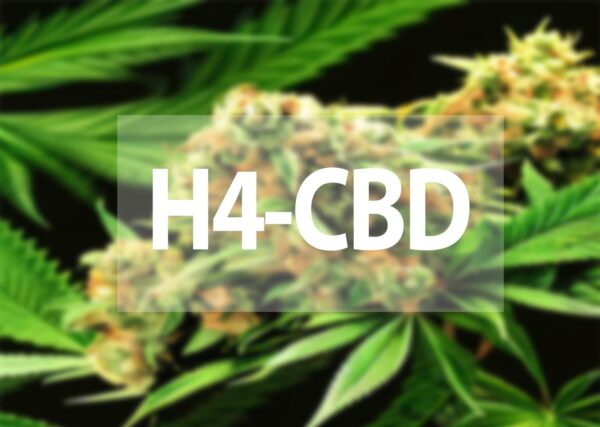Have a question? +336 70 73 89 02
🔞 Not for sale to under 18s
🎃 -40% with code HALLOWEED (on EVERYTHING except vaporizers and gummies) 🎃
Have a question? +336 70 73 89 02

The supply of legal CBD is constantly evolving. Just a few weeks after the ban on HHC, new products have appeared on the shelves. THCP, THCV and the one we're going to talk about here: H4CBD.
What is its history? What are its effects? What are the benefits and risks? What is its legal status in France? In this article, we answer all your questions about H4CBD.
Following the discovery of CBD itself, H4CBD was first synthesized in the 1940s. This semi-synthetic molecule consists of a CBD molecule to which 4 hydrogen atoms have been added, hence the name H4CBD. The Todd group is responsible for this molecule. A group of American and British researchers responsible for research into hemp and its active compounds, their various effects on the body and their medical applications. Since forgotten, this research has recently resurfaced in the USA, before arriving here in France.
Although it was synthesized over 80 years ago, the data collected on this molecule is still pretty thin. Its use has remained discreet, not to say non-existent, and consequently, research on the subject has not been rushed.
Nevertheless, it has been shown that this addition of hydrogen to the CBD molecule increases its interaction with our endocannabinoid system (ECS). CBD acts on our organism through its interaction with CB2, while masking the CB1 receptor. H4CBD activates both receptors, increasing the CBD molecule's active effects and duration of action.
Despite the paucity of data available on H4CBD, we can nevertheless get an idea of its effects from early consumer reviews.
Yes, H4CBD can have psychotropic effects. By acting on the CB1 receptor, which is the main receptor stimulated by THC, you may experience mild psychotropic effects, but since it is not a psychoactive substance, the molecule does not affect your mental state or abilities. H4CBD produces a feeling of relaxation and mild euphoria, but does not appear to be the source of paranoia, lethargy or any other mental disorder.
On the face of it, the benefits are the same as CBD. But thanks to its stronger interaction with our endocannabinoid receptors, its potency is increased tenfold. Early reports and pharmacological studies on H4CBD , such as those carried out by the group led by Israeli professor Shimon Ben-Shabat1, point to the following:
So you can use it for the same reasons you use CBD, to relax or help you sleep. As its effects are enhanced, it may enable you to reduce your consumption. And like CBD, it's not addictive .

Again, it differs from its base molecule only in potency. It has the same potential side effects as CBD. It can cause drowsiness, nausea and dry mouth. These effects are often experienced following over-consumption, and although more powerful, they remain mild and temporary.
Particular attention must be paid to drug interactions . H4CDB is also an active substance, so it can have unforeseen effects if taken at the same time as medical treatment. So it's vital to consult your doctor before considering trying H4CDB if you're on medication.
As with HHC before it, hydrogenated CBD was new to the market, so the regulations surrounding it were rather unclear. Simply put, it was legal until proven otherwise. But this provisional legality lasted only a short time. It was banned on June 3, due to potentially dangerous effects.
In short, H4CBD and its effects have attracted many curious onlookers and just as many enthusiasts. It seduced CBD consumers looking for stronger effects. But after some consumer setbacks , the molecule and a host of others were banned .
Note: